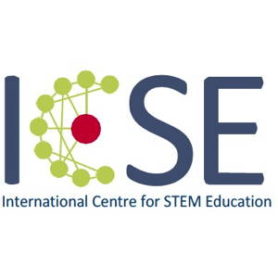ICSE STE(A)M Vision – nieuw EU project

Title: ICSE STE(A)M vision
Empowering teachers as STE(A)M-visionaries
Co-creating systemic change across Europe through interdisciplinary multi-stakeholder collaboration
Bijeenkomst over de acht modules – 17 februari 2026, 16:00-16:45
Acht modules zullen ontwikkeld worden (2026-2028) voor opleiding/nascholing, voor stem-onderwijs 12-16 jaar. Eenvoudig gezegd: er is sprake van stem-onderwijs als tenminste twee ‘mono-disciplines’ uit het STEM-gebied zijn betrokken.
Wie wil een bijdrage leveren aan onderwerpkeuze (of wellicht zelfs een complete module aandragen als startpunt voor een europese module, denk aan NLT, technasium, e.d.).
De modules moeten passen bij een van de volgende vier thema’s:
- Sustainability and economic competitiveness (Duurzaamheid en economisch concurrentievermogen)
- Digital transformation (Invloed van verdergaande digitalisering)
- Food and health (Voeding en gezondheid)
- Cultural, social and societal challenges (culturele, sociale en maatschappelijke uitdagingen)
Link naar deze online vergadering 17-2, 16:00-16:45
The overall objective of the ICSE STE(A)M vision is to create a sustainable interdisciplinary European partnership on integrated STE(A)M, offering clear European prospects for STE(A)M teacher education.
Central to this endeavour is a high-capacity consortium that brings together 7 higher education institutions (all major providers of initial and ongoing teacher education), two European-level teacher training organisations, and 3 schools. By strategically combining three established alliances to form a ‘hyper-network’ – the ICSE consortium of 18 higher education institutions, European Schoolnet’s network of over 30 Ministries of Education, and
EduNet’s strong links with teachers and policy makers – the consortium ensures broad European reach and robust regional implementation.
Our objectives in this project are threefold.
1. We develop a high-quality, integrated STE(A)M teacher training programme – 8 practice-based modules co-created by experts and practitioners from different STEM disciplines and based on real-world challenges.
2. We implement this programme in accessible mobility formats (virtual, blended, physical), enabling intercultural exchanges and shaping a valuable European STE(A)M learning community to offer teachers the opportunity for continuous training in an international setting and keep them motivated for their job.
3. We embed policy dialogue at all levels (European, national, regional), using seminars, briefs and networking to inspire evidence-based reforms in teacher education systems.

The sustainability of the partnership will be ensured through established networks and ongoing support structures that will outlast the project itself. A systemic approach to co-creation, quality assurance, and a convincing plan for sustainable STE(A)M programme implementation will maximise longterm impact. With a strong European dimension and targeted communication with stakeholders, our project will achieve lasting improvements in STE(A)M teacher education.
2 PT: Instituto de Educação da Universidade de Lisboa
3 TR: Hacettepe universitesi
4 NL: Universiteit Utrecht (freudenthal institute and u-talent), WP2
6 BE: EUN partnershp AISBL
7 CZ: Univerzita karlova
8 AT: Universitaet Klagenfurt
and some school boards.
This is an important question, integrated or not. In the plan (2025) we read the following: We define integrated STE(A)M as interdisciplinary teaching where at least two (usually more) disciplines – from STEM disciplines and/or one other – are applied within real-world contexts. We consider this approach as essential because:
- using real-world challenges adds authenticity to the learning experience and deepens awareness of why
STEM matters in everyday life; - it is essential for addressing most critical global challenges, which are inherently interdisciplinary and lie within the STE(A)M domain
- it promotes development of competences like problem-solving, scientific thinking and creativity urgently needed in the 21st century characterized by rapid multiplication of technologies (Tasiopoulou et al. 2022, Unesco 2019). Such a STE(A)M teaching answers both to the needs of the labour market as well as to the need of societies for active citizenship.
| 1 | Professional development framework for teachers: Sancar, R., Atal, D., & Deryakulu, D. (2021). A new framework for teachers’ professional development/. Teaching and Teacher Education, 101, 103305 (macro) |
More info |
| 2 | STE(A)M teacher competence framework: Spyropoulou, N., & Kameas, A. (2023). Augmenting the Impact of STEAM Education by Developing a Competence Framework for STEAM Educators for Effective Teaching and Learning. Education Sciences, 14(1), 25 (meso) |
More info |
| 3 | STE(A)M-IT Framework. (Tasiopoulou et al., 2022). Deliverable from the EU-project STEAM IT (micro) |
More info |
| 4 | A Conceptual Framework for Integrated STEM Education: Kelley & Knowles (2016). 10.1186/s40594-016-0046-z (micro) | More info |
With those frameworks as a starting point we can:
- Select eight real-life, cutting-edge STE(A)M topics that serve as the foundation for STE(A)M learning experiences.
- Set up a STE(A)M teacher education framework as a basis for the module design, later serving as a reference for assessing the programme’s impact
- Design a STE(A)M teacher education programme in a co-creation process, ensuring pedagogical coherence across modules
- Develop a joint learning offer with a strong European dimension, integrating diverse perspectives across the consortium
First draft of this ICSE Steam Vision Framework
Taking into account the different frameworks mentioned above, and connecting the different levels (micro, meso, macro), this first draft (spring 2026) is made:

We investigate the possibilities and restrictions of using this framework, e.g. by working with a ‘checklist’ for existing and new teaching and learning materials 12-16 years old, in situations where at least two ‘mono-disciplines’ are involved (math-bio, physics-chemistry, comp.sci.-bio, etc.)
- Chan, K. K. H., Xu, L. and Mesiti, C. (2025). Rethinking the Who, What, and How of Teacher Professional Development: A Framework Emerging from the Special Issue on Technology-Enabled Professional Development for Science, Mathematics, and STEM teachers (PDF) International Journal of Science and Mathematics Education, 23(6), 1947–1957 doi:10.1007/s10763-025-10584-5.
- Davenport, C., Dele-Ajayi, O., Emembolu, I., Morton, R., Padwick, A., Portas, A., Sanderson, J., Shimwell, J., Stonehouse, J., Strachan, R., Wake, L., Wells, G. and Woodward, J. (2020). A Theory of Change for Improving Children’s Perceptions, Aspirations and Uptake of STEM Careers (PDF) Research in Science Education, 51(4) doi:10.1007/s11165-019-09909-6.
- Hazelkorn, E. (2015). Science education for Responsible Citizenship (PDF) (pp. 88). Brussels: European Commission.
- Quinn, H. (Ed.). (2011). A Framework for K-12 Science Education: Practices, Crosscutting Concepts, and Core Ideas (PDF). Washington DC: The National Academies Press.
- Reinholz, D. L. and Andrews, T. C. (2020). Change theory and theory of change: what’s the difference anyway? (PDF) International Journal of STEM Education, 7(1) doi:10.1186/s40594-020-0202-3.
- Sancar, R., Atal, D. and Deryakulu, D. (2021). A new framework for teachers’ professional development (PDF) Teaching and Teacher Education, 101, 103305 doi:10.1016/j.tate.2021.103305.
- Spyropoulou, N. and Kameas, A. (2023). Augmenting the Impact of STEAM Education by Developing a Competence Framework for STEAM Educators for Effective Teaching and Learning (PDF) Education Sciences, 14(1), 25 doi:10.3390/educsci14010025.
- Stevenson, E., Van Driel, J. and Millar, V. (2025). Supporting STEM Teacher Program Development: The Benefit of a Multifaceted Set of Enablers (PDF) International Journal of Science and Mathematics Education, 23(8), 3205–3229 doi:10.1007/s10763-025-10586-3.
- Tasiopoulou, E. (2022). European Integrated STEM Teaching Framework (PDF). Brussels: European Schoolnet.
- Van den Akker, J. (2003). Curriculum perspectives: an introduction (PDF). In J. Van den Akker, W. Kuiper and U. Hameyer (Eds.), Curriculum landscape and trends (pp. 1–10). Dordrecht: Kluwer Academic Publishers.
References






